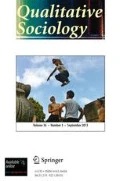Abstract
Ethnographers “read” cultures and in writing inscribe memory into texts; in literature, a “reading” is a dialogue with a writer through the medium the text, and writing translates text into action. In a study of humanists using the microcomputer as a writing technology, changes were perceived in the phenomenology of writing, the writer's relation to the text, and the relation to the reader. Typists remarked that the computer enabled them to recover “a spoken voice” because the screen gave the text a processual and temporal form which replaced the inflexible typed page. Handwriters often remarked that the computer changed humanistic craft labor into industrial production: the screen gave privilege to the lexical in place of the graphic; the sentence replaced the paragraph as a unit of meaning; writing became a medium for transmitting information rather than an artistic performance. Humanists perceived that technical norms were embedded in technical culture and software, and that the computer marked a shift in the reward structure of their professions toward productivity and efficiency. This suggests three issues for the writing crafts of ethnographers. Electronic memory may replace the interpretive text, making fieldnotes public and treating them as information. The technical capacity to organize fieldnotes in data bases may shift the fieldworker's conception of knowledge from interpretation to information. And consuming the norms and concepts of technical culture may shift the craftlike norms of the field worker's culture.
All earthly existence must ultimately be contained in a book.
—Mallarme
Similar content being viewed by others
References
Barthes, Roland 1970 “To write: An intransitive verb.” In R. Macksey and E. Donato (eds.), The Languages of Criticism and the Sciences of Man. Baltimore: Johns Hopkins.
—— 1977 Roland Barthes by Roland Barthes. Richard Howard (translator). New York: Hill and Wang.
Becker, Howard S. 1984 (Forthcoming) “Freshman English for graduate students: A memoir and two theories.” Sociological Quarterly.
Benjamin, Walter 1969 “The work of art in the age of mechanical reproduction.” In Illuminations. Harry Zohn (translator). New York: Schocken.
Cicourel, Aaron 1974 “Interviewing and memory.” Pp. 51–82 in Pragmatic Aspects of Human Communication. Holland: D. Reidel.
Clifford, James 1983 “On ethnographic authority.” Representations. (Spring).
Cowley, Malcolm, ed. 1958 Writers At Work: The Paris Review Interviews. New York: Penguin.
Eisenstein, Elizabeth 1979 The Printing Press As An Agent Of Change. Cambridge: Cambridge University Press.
Emerson, Robert M., ed. 1983 Comtemporary Field Research. Boston: Little, Brown.
Feigenbaum, Edward A. and Julian Feldman, eds. 1963 Computers and Thought. New York: McGraw Hill.
Geer, Blanche, ed. 1972 “Learning to work.” The American Behavioral Scientist. 16:1.
Geertz, Clifford 1973 “Thick description: Toward an interpretive theory of culture.” The Interpretation of Cultures. New York: Basic Books.
Geertz, Clifford 1983 “Being there: Anthropology and the scene of writing.” Harry Camp Memorial Lecture Series, Works and Lives: The Anthropologist as Author. Stanford University, May 16.
Geertz, Clifford 1980 “Blurred genres: The refiguration of social thought.” The American Scholar. Spring: 165–182.
Glaser, Barney G. and Anselm L. Strauss 1967 The Discovery of Grounded Theory. Chicago: Aldine.
Levi-Strauss, Claude 1967 Structural Anthropology. Claire Jacobson and Brooke Grundfest Schopf (translators). Garden City, New York: Anchor.
Mallarme, Stephane 1982 “The book: A spiritual instrument.” Selected Poetry and Prose. Mary Ann Caws (ed.). New York: New Directions.
Marx, Karl and Friedrich Engels 1978 The Marx-Engels Reader. Second Edition. Robert C. Tucker (ed.). New York: W. W. Norton.
McCorduck, Pamela 1979 Machines Who Think. San Francisco: W. H. Freeman.
Nancarrow, Paula Reed, Donald Ross and Lillian Bridwell 1982 “Word processors and the writing process: An annotated bibliography.” English Department, the University of Minnesota, Minneapolis, Minnesota.
Reinharz, Shulamit 1979 On Becoming a Social Scientist. San Francisco: Jossey-Bass.
Schatzman, Leonard and Anselm L. Strauss 1973 Field Research. New Jersey: Prentice-Hall.
Turkle, Sherry 1980 “The computer as Rorschach.” Transaction. January-February: 15–24.
—— 1982 “The subjective computer: A study in the psychology of personal computation.” Social Studies of Science. 12:173–205.
Zajonc, R. B. 1980 “Feeling and thinking.” American Psychologist 35(2):151–175.
Author information
Authors and Affiliations
Rights and permissions
About this article
Cite this article
Lyman, P. Reading, writing and word processing: Toward a phenomenology of the computer age. Qual Sociol 7, 75–89 (1984). https://doi.org/10.1007/BF00987108
Issue Date:
DOI: https://doi.org/10.1007/BF00987108




